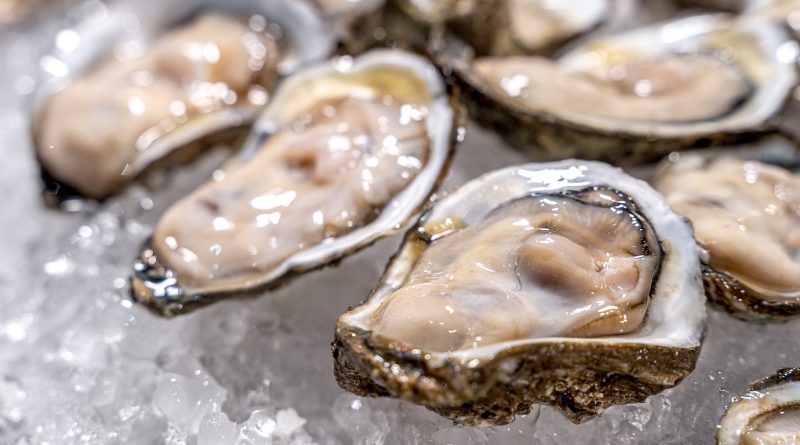At least 80 people in Los Angeles sickened by norovirus outbreak linked to raw oysters
An outbreak of norovirus tied to raw oysters sickened more than 80 people at a high-profile event celebrating the best restaurants in Los Angeles. The Los Angeles County Department of Public Health confirmed the incident to ABC News, marking it as a significant foodborne illness event in the city.
The Event and Outbreak Details
The outbreak occurred at the Hollywood Palladium during a celebration of the Los Angeles Times’ list of the 101 best restaurants on December 3. This annual event draws food enthusiasts and industry professionals alike, offering them a chance to sample dishes from the city’s top eateries. Unfortunately, this year’s event became the center of attention for a different reason.
The health department identified raw oysters as the source of the norovirus contamination. The oysters, identified as Fanny Bay Select and Fanny Bay XS from Pacific Northwest Shellfish Co., were served at the event. Attendees who consumed the oysters began reporting symptoms shortly after.
Understanding Norovirus and Its Spread
According to the Centers for Disease Control and Prevention (CDC), norovirus is a highly contagious virus known for causing vomiting and diarrhea. Often referred to as the “stomach flu” or “stomach bug,” norovirus is the leading cause of foodborne illness in the United States. Additional symptoms can include stomach pain, fever, headaches, body aches, and dehydration.
The virus spreads rapidly, especially in communal settings, and is resistant to many common cleaning methods. Preventive measures include proper handwashing, disinfecting contaminated surfaces, washing laundry in hot water, and isolating oneself when experiencing symptoms.
Public Health Response and Recall
The Los Angeles County Department of Public Health reported that over 80 attendees who consumed the oysters at the event experienced illness. As a precaution, the oysters in question have since been recalled. The department noted that the affected oysters were packed on or after November 25, with a recall notice issued on December 13.
In response to the outbreak, the U.S. Food and Drug Administration (FDA) issued a warning on December 18, advising restaurants, retailers, and consumers to refrain from selling or consuming these oysters. The FDA highlighted that the contamination likely originated in British Columbia, Canada, and issued the warning across 15 states, including California, Arizona, Illinois, Pennsylvania, and New York.
Supplier and Stakeholder Reactions
Santa Monica Seafood, the supplier of the oysters for the event, acknowledged the ongoing investigation in a statement to ABC News. The company expressed its commitment to cooperating with public health authorities and emphasized that no evidence of mishandling has been found in the supply chain.
“There is no evidence to suggest mishandling at any point in the supply chain, including by Santa Monica Seafood or any of the restaurants participating in the LA Times event,” the statement read.
The Los Angeles Times, which organized the event, has yet to provide a comment on the outbreak. Tickets for the event ranged from $264 for general admission to over $600 for VIP access, making the outbreak particularly concerning for attendees who paid a premium to enjoy the evening.
Broader Implications of the Incident
This outbreak underscores the potential risks associated with serving raw shellfish, particularly at large gatherings. Oysters are a well-known carrier of norovirus when contaminated, often due to polluted waters or improper handling during processing.
Public health experts emphasize the importance of stringent safety protocols for sourcing and handling seafood. Events showcasing raw or minimally processed foods must take extra precautions to ensure attendee safety.
Preventive Measures Moving Forward
The CDC and FDA have issued guidance to minimize the spread of norovirus, particularly in food service settings. These recommendations include:
- Proper Hygiene: Ensure that food handlers wash their hands thoroughly and frequently with soap and water, especially after using the bathroom or handling raw seafood.
- Safe Sourcing: Only purchase seafood from reputable suppliers who follow strict safety standards.
- Disinfection Protocols: Regularly disinfect surfaces and utensils that come into contact with raw shellfish.
- Public Awareness: Educate consumers about the risks of eating raw or undercooked shellfish, especially those with weakened immune systems.
Ongoing Investigations
As investigations continue, public health authorities aim to identify the exact source of contamination and prevent similar outbreaks in the future. The FDA and local health departments will likely implement stricter oversight of seafood imports and processing facilities.
While the outbreak is an unfortunate incident, it highlights the critical importance of food safety in large-scale events. For attendees and organizers alike, it serves as a stark reminder of the risks associated with raw food and the need for rigorous quality control.

